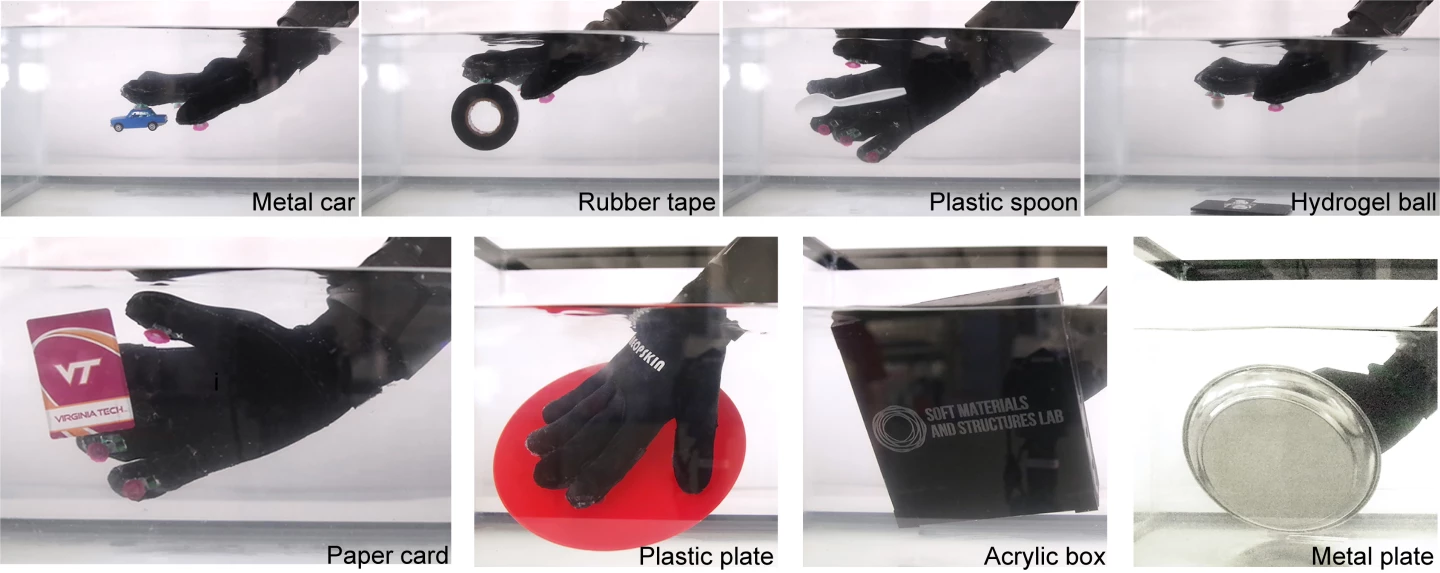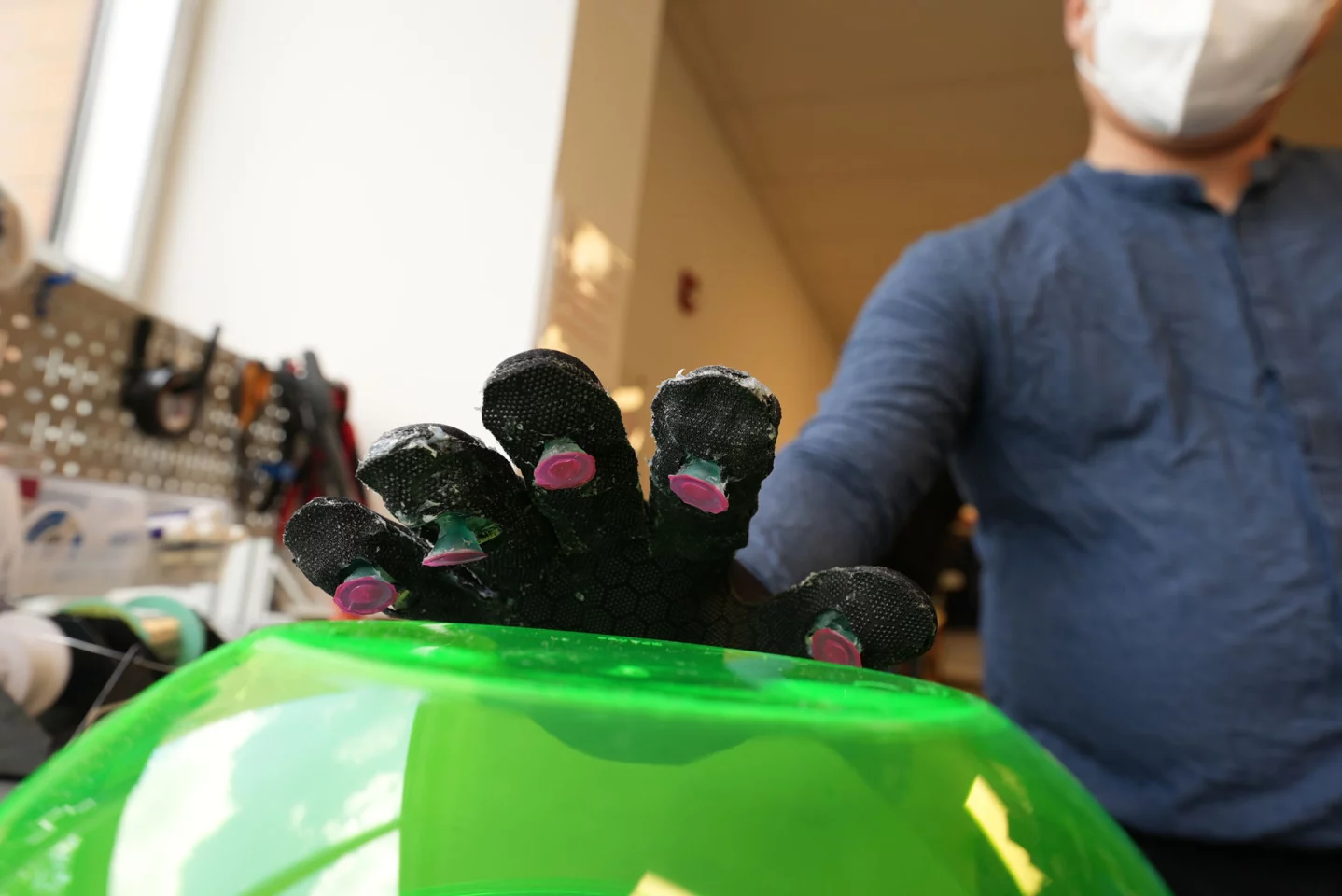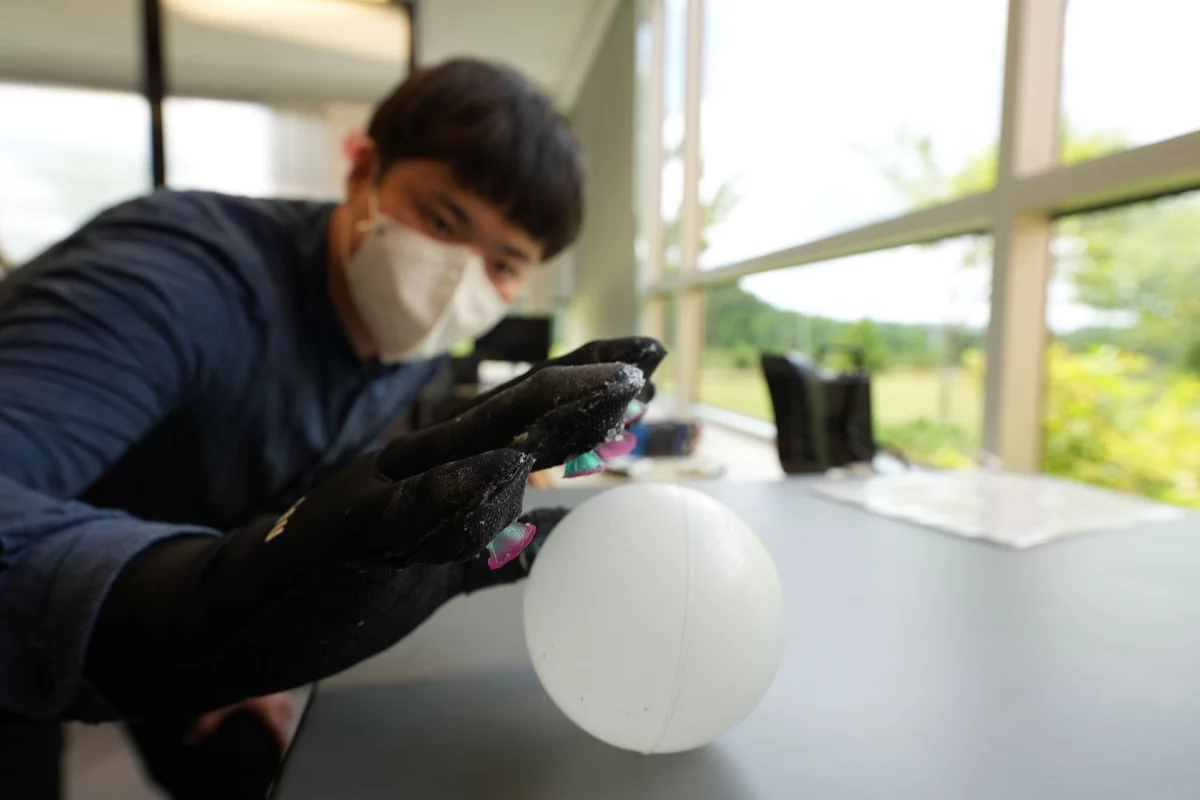Us humans aren't so good at grasping things underwater, but new research reveals how nature could lend us a helping hand. Scientists have developed a glove specifically for these purposes that takes its design cues from an octopus, featuring rubber suckers and a sophisticated sensing capability that mimic the sea creature's unique muscular and nervous systems.
Unlike humans, the octopus is very well equipped to handle all kinds of objects in the water. This is facilitated by more than 2,000 suckers spread across eight arms and an ability to process information from an array of chemical and mechanical sensors. This allows the octopus to navigate rocky terrain and latch onto smooth shells and rough barnacles. Importantly, it enables them to do so with a delicate touch and without exerting too much force.
Researchers at Virginia Tech sought to recreate these capabilities for the human hand with what they call the Octa-glove. It features rubber stalks capped with soft, actuated membranes that mimic the octopus suckers and are designed to adhere to both flat and curved surfaces while only applying light pressure. The glove is able to do this thanks to an array of micro-LIDAR optical proximity sensors that detect nearby objects. A microcontroller connects the sensors with the synthetic suckers to govern their behavior, with the gripping abilities of the glove able to be configured by tuning the sensor array depending on the task at hand.

When latching onto smaller objects such as spoons, metal toys and a hydrogel ball, the glove relies on just a single sensor to grasp them with a delicate touch. By setting it to use all of its onboard sensors for object detection, the glove is able to pick up larger things like plates, boxes and bowls, all without the user needing to close their hand.
“By merging soft, responsive adhesive materials with embedded electronics, we can grasp objects without having to squeeze,” said Professor Michael Bartlett, who led the research team. “It makes handling wet or underwater objects much easier and more natural. The electronics can activate and release adhesion quickly. Just move your hand toward an object, and the glove does the work to grasp. It can all be done without the user pressing a single button.”
The scientists imagine their Octa-glove finding use in all kinds of underwater applications. It could be worn by rescue divers working to extract people or objects from sticky situations, engineers maintaining bridges, or archaeologists on the hunt for submerged artifacts. Importantly, it will enable them to grasp objects without applying much pressure, instead relying on the sensing abilities and synthetic suckers of the glove to do the heavy lifting.

“These capabilities mimic the advanced manipulation, sensing, and control of cephalopods and provide a platform for synthetic underwater adhesive skins that can reliably manipulate diverse underwater objects,” said study author Ravi Tutika. “This is certainly a step in the right direction, but there is much for us to learn both about the octopus and how to make integrated adhesives before we reach nature’s full gripping capabilities.”
The research was published in the journal Science Advances, while you can see the glove in action in the video below.
Source: Virginia Tech







